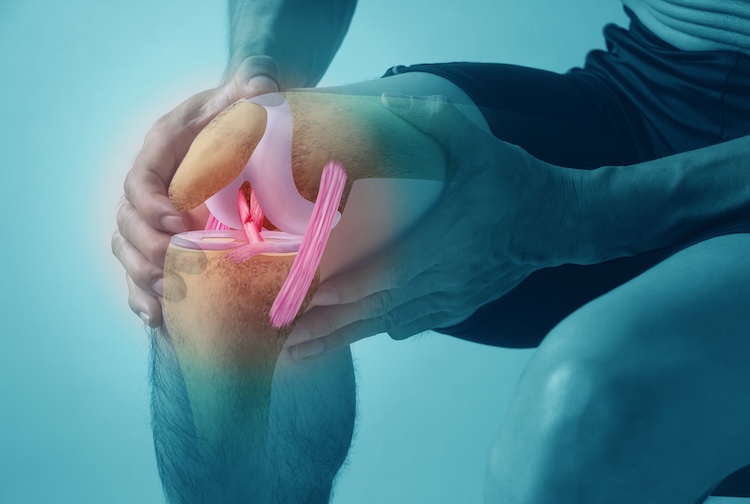Menopause relief: 4 doctor-recommended tips
There is hope for safe symptom relief according to leading menopause specialist at VCU Health.
September 02, 2025 There are a variety of hormone therapies and treatments available to help manage perimenopause and menopause symptoms. (Getty Images)
There are a variety of hormone therapies and treatments available to help manage perimenopause and menopause symptoms. (Getty Images)
By Leigh Farmer
Ninety-five percent of women will reach menopause by the time they are 55 years old. You know that you have officially reached “that season” when you haven’t had a period for a year. However, there will be signs for many years leading up to that point. Hot flashes, weight gain and difficulty sleeping are just a few of the symptoms that will begin to plague women as they enter perimenopause.
Most women in their 40s and 50s already know – menopause is not fun.
However, Jane Limmer, M.D., an OB-GYN at VCU Health and an expert in perimenopause and menopause, says there is hope and some relief. As a Menopause Society Certified Practitioner, she says that educating yourself before menopause will go a long way to prepare you when your hormones begin to shift.
 Jane Limmer, M.D., is an OB-GYN at VCU Health who is a Menopause Society Certified Practitioner. (Tom Kojcsich, Enterprise Marketing and Communications)
Jane Limmer, M.D., is an OB-GYN at VCU Health who is a Menopause Society Certified Practitioner. (Tom Kojcsich, Enterprise Marketing and Communications)
Here are four things to consider when going through perimenopause:
1) Hormone replacement therapy is not what it used to be
Twenty years ago, this type of treatment was often linked to a higher risk of cancer. Most of the controversy around hormone therapy came after preliminary data from the Women’s Health Initiative (WHI) trial was released in 2002. Keep in mind that most women in that trial were older than 60 and asymptomatic (no more hot flashes). In addition, the WHI specifically studied oral conjugated equine estrogen (CEE) and medroxyprogesterone acetate (MPA).
New and ongoing research shows us that the potential risks associated with hormone therapy are different for women who are younger than 60 and/or within 10 years of menopause. Similarly, most hormone therapy being prescribed now contains different hormones, specifically17Beta-estradiol and micronized progesterone. These medicines mimic substances already found in the body and are FDA-approved hormones. They have different effects on the body than CEE and MPA did. When you combine these two factors – younger women who are closer to menopause and different chemical structure of hormones – the risk/benefit ratio of hormone therapy changes.
Benefits of hormone therapy for perimenopause and menopause include:
- Decreased frequency and severity of hot flashes and night sweats (i.e. vasomotor symptoms)
- Prevention of osteoporosis
- Improved sleep
- Decreased vaginal dryness
In addition, hormone therapy may decrease mortality and colon cancer incidence.
There is still the potential for small risks associated with hormone therapy (modest increases in breast cancer and blood clots). So, if you have other health conditions that make you high risk for breast cancer, heart attack, or stroke, make sure to discuss whether hormone therapy is right for you with your health care provider.
There are also several non-hormonal treatments, such as:
- Fezolinetant (Veozah©): This drug works on the part of the brain where we believe hot flashes originate
- Antidepressants such as SSRIs and SNRIs: This type of drug, while you shouldn’t use it to primarily fight menopause symptoms, has been shown to help. Paroxetine salt (Paxil©) is the only one with FDA-approval, but many others have been shown to be effective.
- Gabapentin and oxybutynin: These drugs can be used off-label (not FDA-approved) to decrease vasomotor symptoms.
2) Modify your lifestyle and don’t buy the hype
There are a multitude of lifestyle therapies that are marketed to women to decrease hot flashes and other symptoms of menopause. The only lifestyle techniques proven to work in clinical trials, and that are recommended by The Menopause Society, are weight loss, cognitive behavioral therapy and hypnosis. Techniques such as mindfulness exercises, yoga, acupuncture and dietary changes unfortunately do not, at this time, have robust data to indicate that they actually help. That is not to say that these wellness activities do not benefit your overall health, but rather they have not been proven to decrease hot flashes and night sweats.
Similarly, none of the natural, over-the-counter supplements such as soy-based products or black cohosh have been proven to be more effective than placebo. There is likely no harm in trying them, but physicians cannot be sure that they will actually improve a woman’s perimenopausal symptoms.
3) Make your mental health a priority
Mood and cognitive changes are very real issues in perimenopause and menopause. Although menopause does not cause depression and anxiety, these conditions can worsen during this time in a woman’s life. It is crucial that women seek proper care for anxiety and depression from mental health professionals as needed. Hormone therapy has been shown to improve both depression and anxiety, but it should not be used exclusively to treat these conditions. In addition, several antidepressants also provide relief from hot flashes, so starting one of these medications may be appropriate for women in this phase of life.
While cognitive changes are both common and documented in research studies of perimenopausal women, hormone therapy has not been shown to “fix” these bothersome events known to many as “brain fog.” It is important to acknowledge these changes may happen, feel reassured that this is not and will not become dementia. Instead, make lists and build extra time in your schedule to make work and life more manageable.
4) Remember there is a light at the end of the menopausal tunnel
In all aspects of health care, it is important not to live in a world of absolutes. Life post-menopause is not going to be all good or all bad. However, many aspects of menopause do get better; for example, hot flashes will eventually go away. It may take years, but they will stop.
We also have to acknowledge and accept that our bodies change as we age. Our metabolism and sleep change; we may not be able to eat and drink and exercise in the way we once did and still feel good throughout the day. You can sleep 8 hours at night and remain a size 4 as you age, but you will have to work for it!
Adjust your routines both at work and at home to give yourself grace during these years. Seek care from medical professionals to decrease symptoms. And while this might not be medical advice, it is very helpful to talk about what you are going through with friends. The support will provide you with comfort, laughter and a little bit of hope that you will survive this time in your life.




